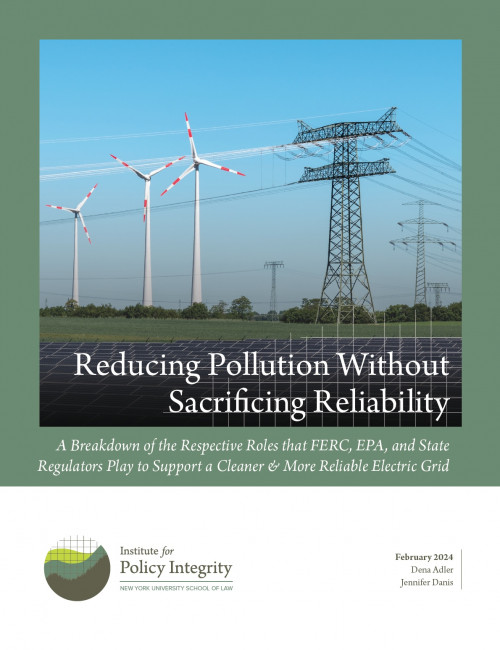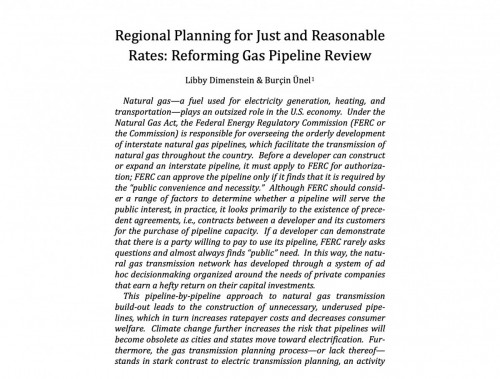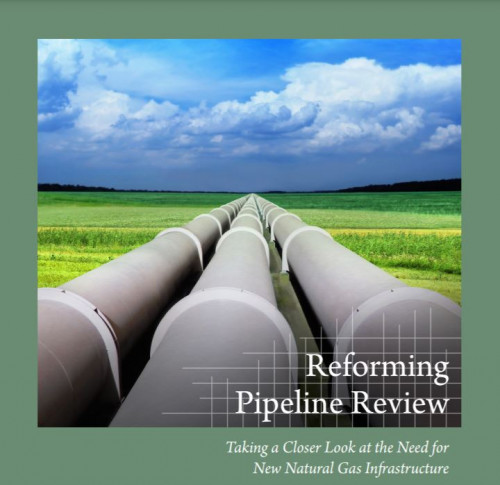-

Reducing Pollution Without Sacrificing Reliability
A Breakdown of the Respective Roles that FERC, EPA, and State Regulators Play to Support a Cleaner & More Reliable Electric Grid
Multiple federal and state regulators must coordinate their efforts to ensure electric grid reliability, particularly during a period of major transition, and it is important to understand what role each of them plays. This report reviews the respective roles of FERC, RTOs/ISOs, other transmission operators, state public utility commissions, and state environmental regulators. EPA’s duty to reduce GHG emissions that endanger public health and FERC’s duty to steward grid reliability will require them to coordinate each other’s respective expertise as they work with RTOs/ISOs, state regulators, and utilities to implement EPA rules.
-

Regional Planning for Just and Reasonable Rates: Reforming Gas Pipeline Review
Published in the Columbia Journal of Environmental Law
Natural gas plays an outsized role in the U.S. economy. Under the Natural Gas Act, the Federal Energy Regulatory Commission (FERC or the Commission) is responsible for overseeing the orderly development of interstate natural gas pipelines, which facilitate the transmission of natural gas throughout the country. FERC can approve the pipeline only if it finds that it is required by the “public convenience and necessity.” Although FERC should consider a range of factors to determine whether a pipeline will serve the public interest, in practice, it looks primarily to the contracts between a developer and its customers for the purchase of pipeline capacity. If a developer can demonstrate that there is a party willing to pay to use its pipeline, FERC rarely asks questions and almost always finds “public” need. This pipeline-by-pipeline approach to natural gas transmission build-out leads to the construction of unnecessary, underused pipelines, which in turn increases ratepayer costs and decreases consumer welfare. Climate change further increases the risk that pipelines will become obsolete as cities and states move toward electrification. Relying on economic theory, legal history, and policy analysis, we make the case in this paper—pulished in the Columbia Journal of Environmental Law— for FERC’s adoption of regional gas transmission planning.
-
Reforming Pipeline Review
Taking a Closer Look at the Need for New Natural Gas Infrastructure
The Federal Energy Regulatory Commission (FERC) uses a flawed process to evaluate the need for new, long-lasting gas infrastructure such as interstate pipelines, resulting in a certification process that fails to serve the public interest. As FERC begins to re-examine its approval process for new natural gas infrastructure, our report analyzes the Commission’s authority to consider a broader range of factors when deciding whether a proposed project is in the public interest. The report offers four key recommendations for reform.
Viewing all publications in FERC

